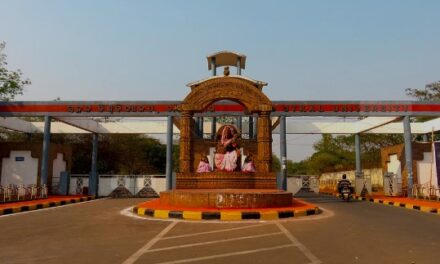Lanier Technical College (LTC), one of the big names in the Technical College System of Georgia, gets its name from the place where it resides- the so-called Lanier Tech which has been the center for training for employment since 1964. The college has diverse programs and is serving seven counties in north Georgia, that is, Banks, Barrow, Dawson, Forsyth, Hall, Jackson, …
A Legacy of Growth and Adaptation
Founded originally as the Gainesville Hall County Area Vocational Trade School, LTC has changed significantly to keep pace with the neurologically evolving dimensions of education and industry. The first classes at the college were squarely in 1966 and conducted in different community settings until the first dedicated building opened in Oakwood, in January of 1967. Demonstrating accessibility and expansion, LTC opened additional campuses: Forsyth (1998), Winder (2002), Commerce (2003), and Dawsonville (2005). And, in 2019, introduced a new $100 million state-of-the-art campus along I-985 in Gainesville in a move that truly increased the capacity to serve its students and the community.
Academic Excellence and Accreditation
The Commission on Colleges of the Southern Association of Colleges and Schools accredits LTC, ensuring that its programs meet high academic quality standards. Individual technical programs may be accredited by an external agency, which reflects the college’s mission of offering quality education. LTC has about 5,045 students enrolled for the Fall Term of 2020, and the programs reflect a wide variety of areas to meet the students’ different aspirations.
Diverse Program Offerings
Having understood the fluctuations taking place in the labor market, LTC has formulated many programs that pertain to diversified fields of study, such as:
- Health Sciences: Prepares students for nursing, dental hygiene, and several other healthcare professions.
- Information Technology: Offers courses such as cybersecurity, and network administration that have been developed in response to increasing demands for IT professionals.
- Advanced Manufacturing: Courses are intended to teach students automation, robotics, and industrial maintenance in support of the manufacturing sector.
- Public Safety: Prepares the future policemen and women, firefighters, and emergency medical technicians.
- Business and Marketing: Education in management, marketing, and entrepreneurship helps develop business skills.
This provides the students with a variety of program choices under which they can prepare for prospects that relate to their interests and the needs of the regional economy.
Commitment to Student Success
The level of establishing student success at LTC is evident within the following parameters:
- Retention Rate: 71.5%
- Graduation Rate: 79.5
- Job Placement Rate: 100%
- Licensure Pass Rate: 85.9%
All these tell a lot about the institution’s effective preparation of its students for life after graduation.

Lanier Tech
Innovative Training Programs
LTC is well-known for its specialized training programs aimed at addressing specific industry concerns. Not the least of the college’s offerings is the Ammonia Refrigeration Program, termed as the finest training course by a state technical college, which typifies LTC’s commitment to meeting designated education to developing students and meeting industry-specific needs. Click here
Community Engagement and Economic Development
Beyond academic programs, LTC plays a pivotal role in community engagement and economic development. LTC, in addition, conducts General Education Development (GED) and English as a Second Language (ESL) classes across the service area, encouraging literacy and inclusiveness. Furthermore, LTC collaborates closely with local businesses and industries to provide workforce training, thus ensuring that the local workforce is adequately resourced with skills that are important in a competitive market.
Modern Facilities and Resources
The new campus of Gainesville has been the site for the 2019 relocation to allow LTC updated facilities equipped to provide an all-around modern learner experience. The campus includes laboratories, state-of-the-art technology, and collaboration spaces devoted specifically to making it an enabling environment for learning. All these resources assure students of having the possibility of practical engagement in their studies, where they will be exposed to the application of their learning in real-world cases.
Accessibility and Affordability
Given its public funding, LTC is concerned with education accessibility and affordability. The college has produced a variety of financing arrangements, such as scholarships, grants, and work-study programs, to minimize the financial burden caused by education costs for students. In addition, LTC has multiple campuses and several flexible scheduling options, including online courses, granting students the utmost convenience in balancing studies with personal and professional responsibilities.
Alumni Success and Industry Partnerships
Successful alumni are moving on to different industries through this extended college. LTC works closely with many local businesses and industries to provide internship opportunities, job placements, and real-world experience for students to get into the industry with all their programs being continued. These partnerships ensure that all the programs being created for students are on the leading edge and most relevant to an evolving workforce.
Future Outlook
Of course, Lanier Technical College remains attached to its purpose of providing quality technical education to meet student’s requirements and the regional economy. Thus, the college struggles to open new program offerings, provide more high-tech buildings, and connect with more community partnerships for further enhancing the impact in Georgia for workforce development.
Lanier Technical College has been a hallmark institution of technical education in Georgia for many years, through its history of campus growth and development, commitment to excellence, and student success. Its programs, facilities, and ecumenically-found community ties collectively empower students to achieve career goals while contributing toward the area’s economy.



